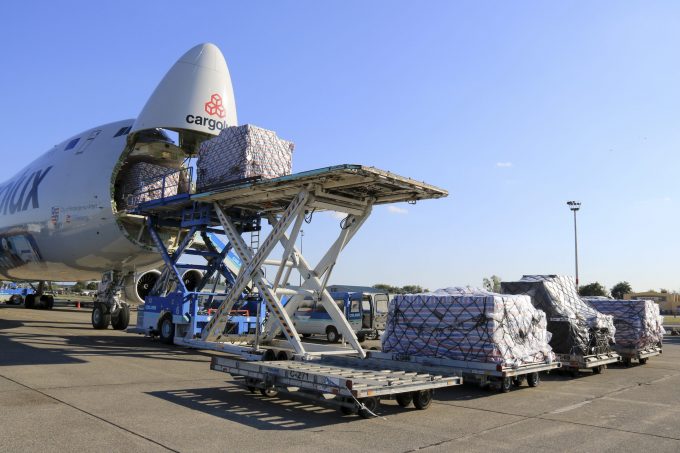The longer you delay digital transformation, the further you fall behind
Supply chain stakeholders are increasingly integrating digitalisation, which is paramount to “staying ahead of the ...

Budapest Airport (BUD) chiefs say they are looking to technology to leverage the opportunities for air freight and e-commerce shipment handling.
The Hungarian airport’s cargo director, József Kossuth, told The Loadstar one of the biggest steps on the cargo technology roadmap is implementation of a cargo community system – a platform facilitating digital interaction between stakeholders.
He said: “We will soon be introducing this solution, but it will not replace the existing internal IT system. Instead, it will enhance it with several new features.”
Mr Kossuth expects the new system to improve operational efficiency by reducing administration, eliminating duplication and manual data entry, providing real-time status visibility, enabling faster custom clearance and more accurate reporting, facilitate the onboarding of human resources, ensure regulatory compliance and strengthen security.
He expects BUD to strengthen its position as a hub with this optimisation of cargo terminal operations and enhance sustainable and smart mobility.
In September, the airport reported 16,924 tonnes in cargo volumes, up 11.6% on the same period in 2022, its strongest start to a peak season to date. However, cargo flights were down 1.9%, due in part to the return of bellyhold capacity.
Development trends, sustainability and opportunities in digitalisation were all key talking points at a cargo forum held in Budapest last month, where Mr Kossuth stressed that digital capability and decarbonisation were an important element of BUD’s agenda, which is already supported by dedicated tools.
“For air freight, we have a novel approach to paperless traffic data and resource management, but we aim to continue optimising resources to support cargo and logistics activities,” he said.
The e-commerce boom continues to boost cargo revenues for airports, and BUD said automation would bring faster procedures for this traffic, as pre-advised volumes would support resource planning and increase staff productivity.
Mr Kossuth added: “The physical infrastructure of BUD is equipped to allow freight forwarders to act as regional distribution centres for the central and eastern European region, making it possible for them to compete with western European and global players.”
He said the optimum utilisation of infrastructure with slot coordination allowed stakeholders to use available warehouse space more efficiently, as well as plan to minimise delays and administrative tasks, and therefore focus on expanding capabilities and utilising digitalisation for forward planning.
Unlike the major hubs, smaller gateways might face challenges with the application of new technologies, for various reasons including the issue of volume versus cost.
“As a regional player, we are in continuous development and we are introducing advanced technologies and setting up new methods of sustainable integration within the airport, including the cargo community,” said Mr Kossuth.
BUD considers implementation as an opportunity rather than a challenge and Mr Kossuth highlighted several advantages for the members of the ecosystem, such as freight forwarders, airlines and ground handlers, as well as for the airport itself.
“We also think it’s important to invest in quality and volume improvement, and by conducting continuous market research, we can react efficiently to demand for property development, based on real-time information about volume, commodities and products.”
Additionally, Mr Kossuth said, BUD supported its stakeholders to acquire consignor and regulated agent certifications to streamline the cargo handling process for trusted shippers.
“The electronic security declaration is another solution BUD is using to implement an advanced security regime, by digitalising the previous paper-based consignment note for export shipments, which also includes the security status,” he explained.
Comment on this article